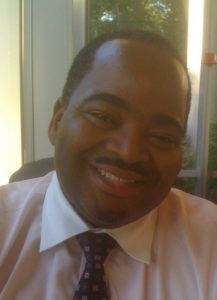 We wanted to get to know Stephen Colwell (NAIWE’s Branding and Marketing Expert) better, so last month we sat down with him. Here are some thoughts he shared with us.
We wanted to get to know Stephen Colwell (NAIWE’s Branding and Marketing Expert) better, so last month we sat down with him. Here are some thoughts he shared with us.
How do successful professionals juggle meetings and work?
Generally, there are two approaches I recommend. 1) Whenever possible, bundle calls within a specific time block. Schedule specific days, mornings, afternoons, or a combination. The key here is to allocate specific windows for calls and avoid interrupting your deep work sessions midstream. 2) When it comes to client-planning calls, consider one longer call weekly rather than multiple shorter calls. This can help open up your schedule to allow more time to focus on the important skilled work. Lastly, scheduling calls during your nonpeak performance hours will help you preserve your finite energy for the actual work you were hired to do.
Is there a best practice that small teams to big teams can apply to regain their focus?
Yes, work closely with your clients and teams to define a pre-set weekly schedule for your project planning calls, check-ins, or huddles. The goal is to define a consistent routine, a rhythm, and a cadence. This removes the scheduling back and forth, reduces noise, and helps everyone block-out the time needed to focus on real work. Also, reduce the use of messaging tools wherever possible. It’s very easy to rattle off instant messages (IMs) on a whim. Resist. Ask: does it really need an answer now, or can it wait until our next huddle or planning call. The daily barrage of IMs is a productivity killer. Reducing the noise requires more effective planning upfront to reduce the need for additional ad hoc requests and meetings throughout the week.
How does this apply to freelancers that run their business while wearing all of the hats?
I encourage freelancers to be assertive, avoid chaos, and work closely with their clients to work out a schedule that protects their key focus time. Everyone works differently. Getting this right requires working with clients who get it, who demonstrate the good faith commitment to finding a balance that works for both the employer and the freelancer. A strong project manager will find this balance.
——————
Far too many creative professionals are struggling with a relentless din of meetings and interruptions that too often get in the way of the strategic work they were hired to do. During this webinar, we’ll walk through a simple set of practices and routines even the smallest teams can use to improve focus without all the disruption and confusion. If you work in a team environment where strong coordination and collaboration is vital to your success, this workshop was designed for you.
You can join in this conversation on May 25, at 2:00 pm eastern, when NAIWE will host a discussion on working with and managing teams. The cost for NAIWE members is only $10! Non-members can join for $30. Register today!

 We wanted to get to know Laura Pennington Briggs (
We wanted to get to know Laura Pennington Briggs ( We wanted to get to know Marcia Rosen (
We wanted to get to know Marcia Rosen ( We wanted to get to know Kajli Prince (
We wanted to get to know Kajli Prince ( We wanted to get to know Jake Poinier (
We wanted to get to know Jake Poinier ( We wanted to get to know Ashley Henyan (
We wanted to get to know Ashley Henyan ( We wanted to get to know John McIntyre (
We wanted to get to know John McIntyre (